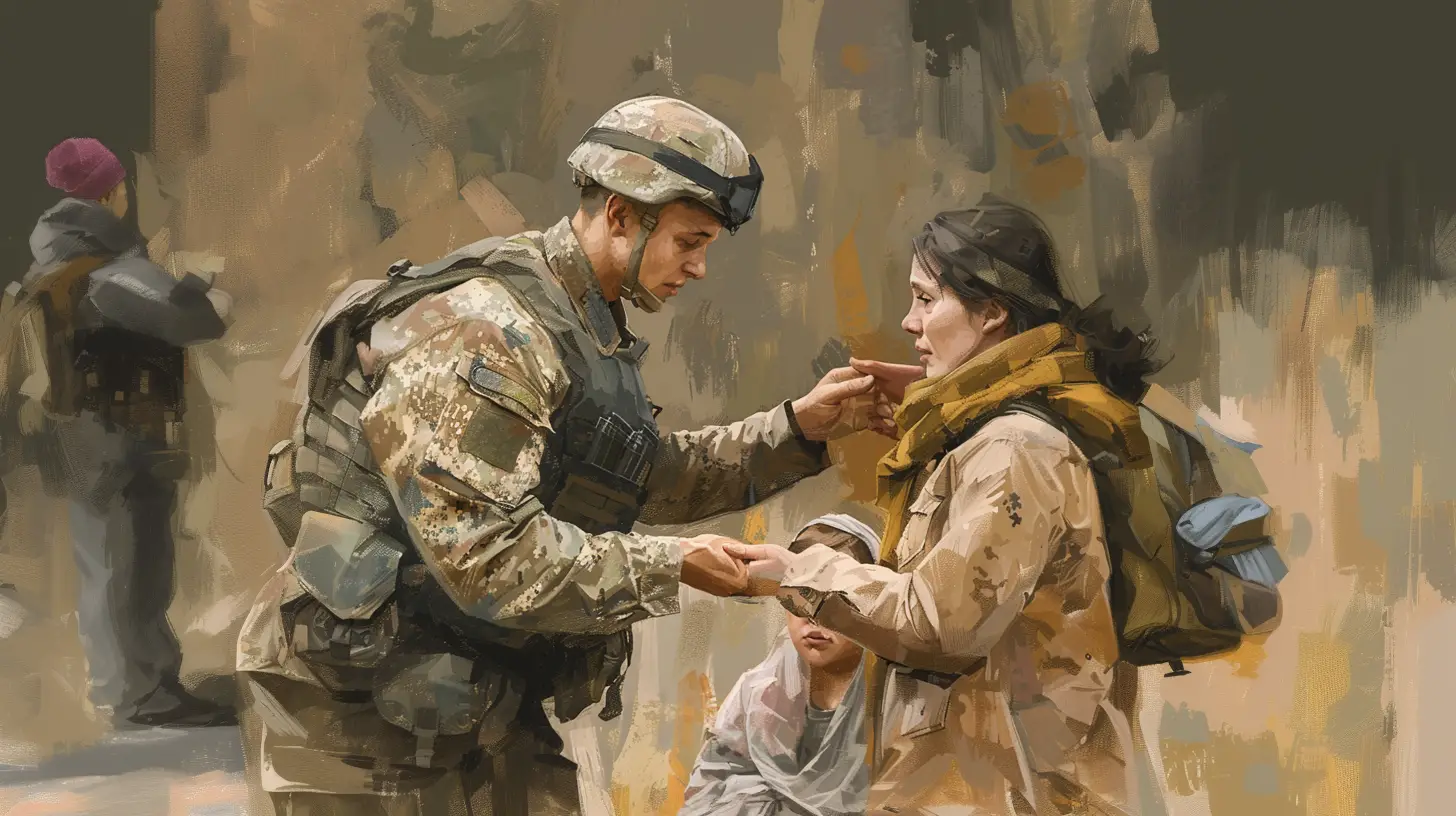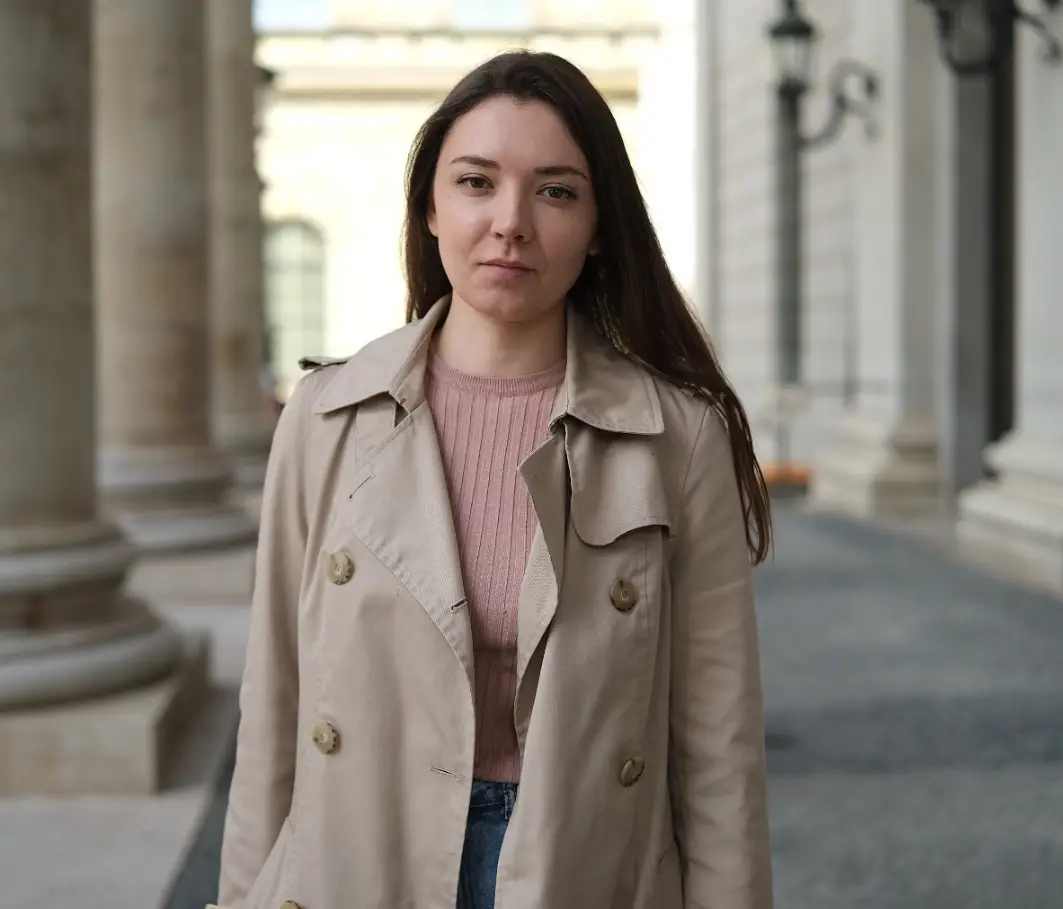We, the international news publication DailyHub.News, which publishes content in four languages, are initiating an important social project called "Psychological support for veterans: understanding and help after returning from a combat zone". Through this project, we aim to raise public awareness of the importance of supporting veterans who are returning from combat. Military conflicts leave deep psychological wounds, and community support is key to the successful rehabilitation of military personnel. Creating a supportive environment for these individuals is of global importance, and our project aims to facilitate this both in Ukraine and elsewhere. DailyHub.News provides a platform for professional advice and expert opinions from psychologists to help society better understand the needs of veterans and provide them with appropriate support. We hope that this material will become a valuable resource for those seeking to help our defenders.

Olexandra Vardugina
Photo: Provided by psychologist
Today, a certified Gestalt therapist and crisis counselor, Olexandra Vardugina from Kyiv, gave her advice. She works with the techniques of schema therapy, trauma-focused CBT, art therapy, requests related to adaptation to changes in life, crisis and loss, overcoming the consequences of traumatic experiences, complex emotional states, difficulties in interpersonal relationships, codependency, and the topic of identity and self-worth. Oleksandra has a degree in psychology and 4 years of experience.
Telegram: @oleksandra_psyhelp
When faced with the fact that a loved one has been diagnosed with PTSD, you may find yourself experiencing difficult feelings of fear, confusion, and confusion about how to proceed. Familiarizing yourself with information about PTSD: symptoms and manifestations, causes, consequences, treatment and self-help options, etc. can help reduce anxiety somewhat.
Understanding what is happening to your loved one will give you confidence. Support from family and friends is as important to recovery as professional help. This can be a challenging journey, as a person with this condition may avoid other people and familiar activities, be very anxious and wary, feel angry or helpless. In addition to physical health effects, disability, etc., PTSD can be accompanied by depression, anxiety, complicated bereavement, difficulty with memory and concentration, and a tendency to abuse alcohol.
It is important to evaluate your own strengths and capabilities. What is happening in your own life, to what extent are you ready to help? Realize that recovery requires the active position of the person himself/herself, his/her willingness to help himself/herself. Do not remain the only person who can provide support, involve other relatives, friends, get support from professionals and the community.
You may need a lot of patience and empathy. You should not pressure the person in this state to tell you what they have experienced, but at the same time be prepared to support their willingness to talk about it. Look for a balance so that you don't overload the person with your reaction to the story on the one hand, but at the same time don't devalue their experience and experiences. Words like "I'm sorry you had to go through this", "I believe you can overcome this", "I'm here for you" can help.
If you live together or spend a lot of time together, avoid triggers that may cause flashbacks (sounds, smells, etc. that may remind you of the traumatic event). Involve the person in simple, everyday activities (household, socializing, hobbies, other resource activities). Your help in planning for the future may be needed. This ability may be impaired as a result of mental trauma. Start with short periods of time (not a vacation next year, but a walk the next weekend).
Healing from the effects of traumatic events is a long and challenging journey, a marathon. It will take a lot of strength to support a loved one. Do not forget to take care of yourself, rest, have your own personal space. It is worth considering that depending on the nature of the trauma and its effects, you may also need support. A traumatic event can affect everyone in the family as well. Seek professional help if you feel exhausted, irritable, powerless, as you are going through a difficult time in your life. Take care of yourself.













